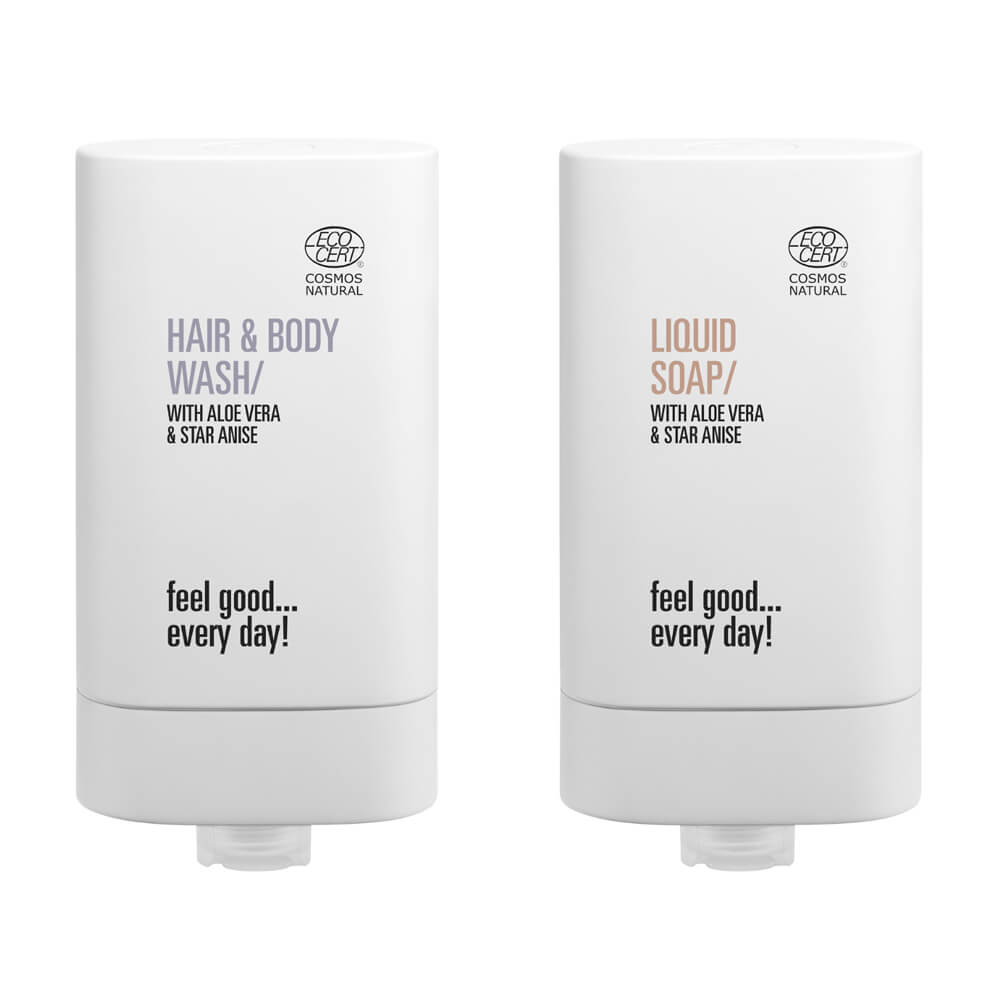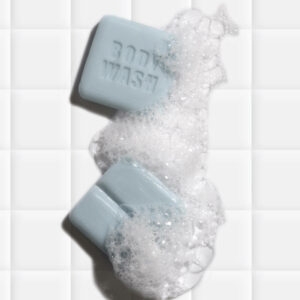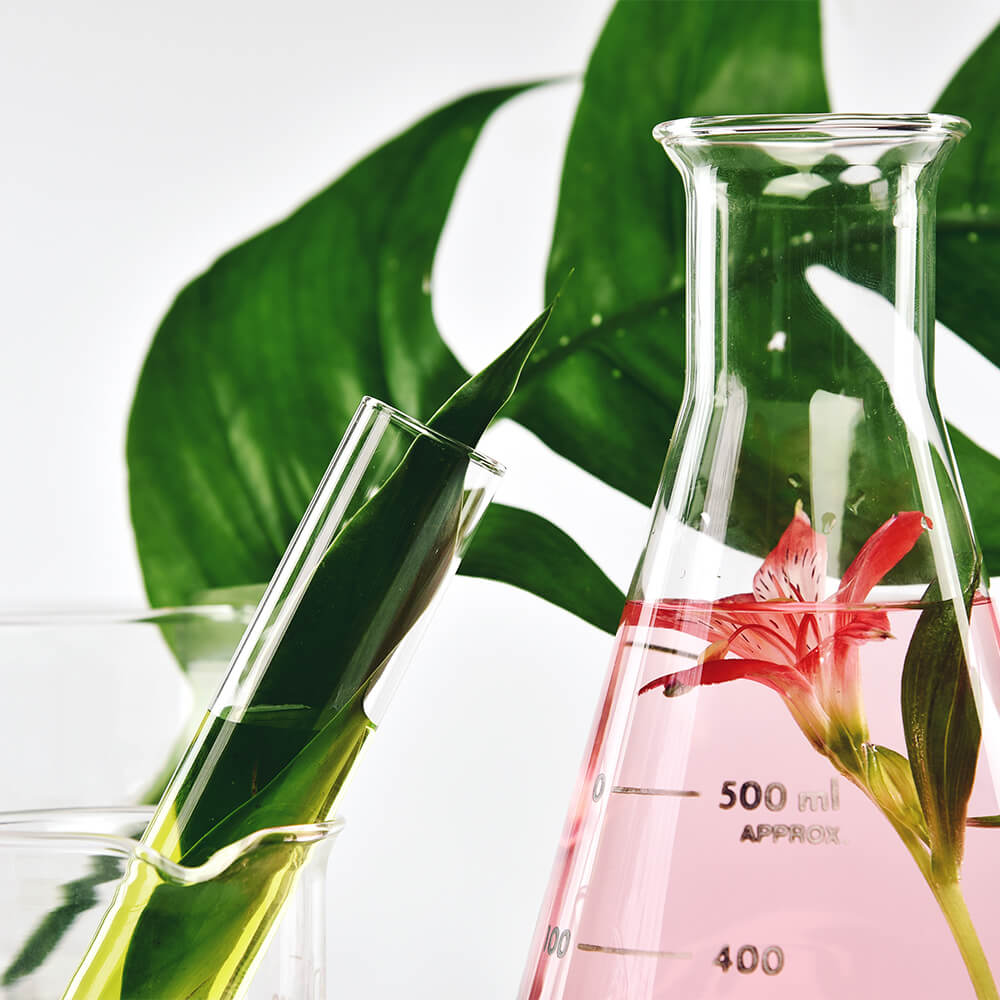
In recent years, modern cosmetics has decided to turn its attention to the rediscovery of natural and organic ingredients, trying to minimise the interference of chemistry in the creation of beauty products.
However, before stating that a cosmetic really follows these criteria, it is advisable to carefully read the label, made according to the INCI system, which dictates the rules regarding the names of the individual components.
Unfortunately, there are many products that are labelled as natural or organic when in fact they contain substances that are not, even if in small quantities, and therefore negligible within the list.
In this article, we will therefore see in detail how to recognise cosmetics that can actually meet the requirements of a natural product.
Composition of natural cosmetics
You will then hear about operations such as filtration, distillation and sieving, carried out with modern and technological methods without the environmental impact being excessive and, above all, harmful.
This is a way of maintaining the beneficial and nutritional properties and therefore not having to intervene by adding chemicals in order to obtain a top result.
What are the ingredients that should be taken into account when you start reading the label, to avoid them even in small quantities or accept them as benefits?
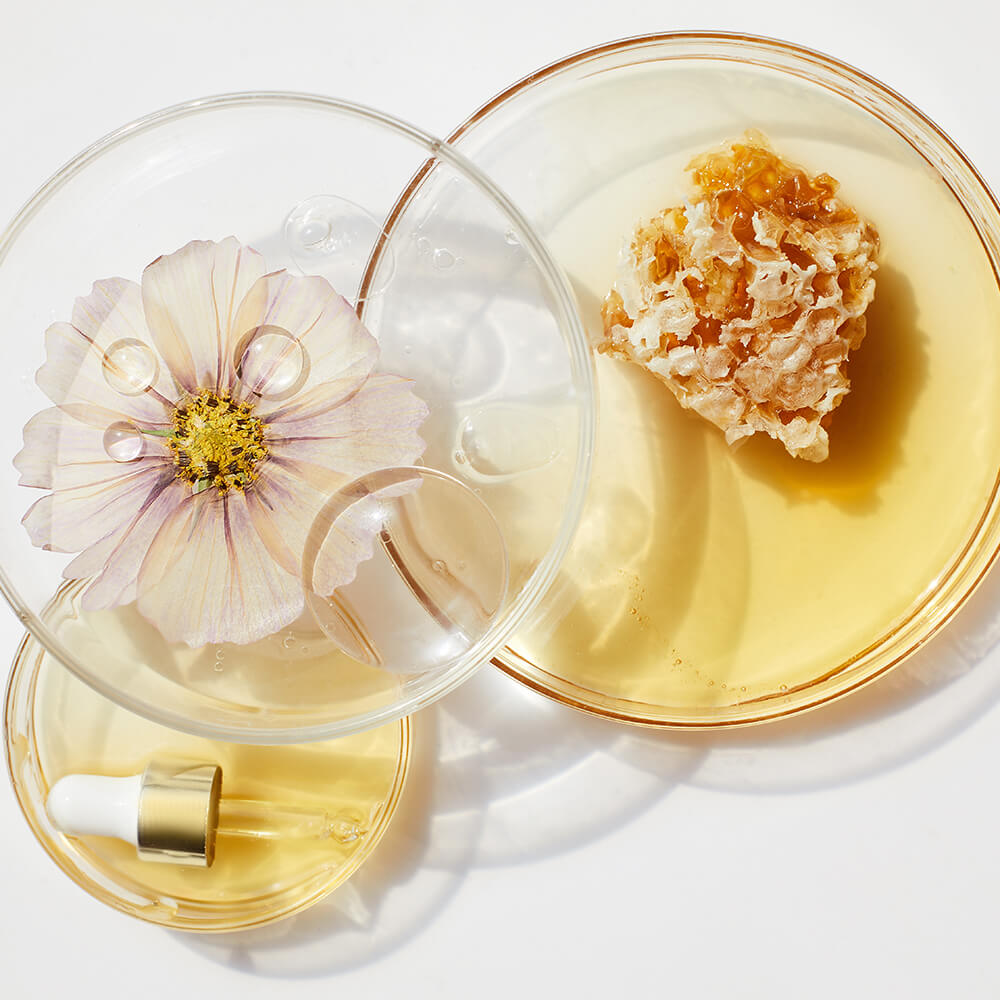
Mineral oils
Many of the beauty products we use are made from mineral oils, while biological products use natural oils or water as a base.
The former contain traces of oil, although they are filtered to minimise problems.
In most cases, this does not cause side effects that can be observed in the short and long term, but sometimes the skin may be affected by chemicals, which tend to settle inside the body.
Therefore, these are elements that are banned from the natural cosmetics that we are dealing with.
Preservatives
On the back of cosmetics, you will always find the symbol of a jar with an indication of the months of storage.
This process of resistance to viruses, bacteria and moulds derives precisely from the presence of preservatives within the product, without which its life would be much shorter.
It often happens that these elements can lead to skin allergies and for this reason natural cosmetics do not contain them, using alcoholic plants instead to obtain more or less the same effect.
According to some tests carried out, in this way the side effects would be limited and would have a lesser impact.
Parabens
A particular type of preservatives are parabens.
Even if the exact extent of their action on the body is not yet known, it has been found that in the long run they may alter hormonal reactions in a negative way, if used in massive quantities in consumer products, such as shampoos or shower gels.
To avoid negative effects, natural cosmetics do not contain them, always replacing them with organic substances and alcoholic plants.
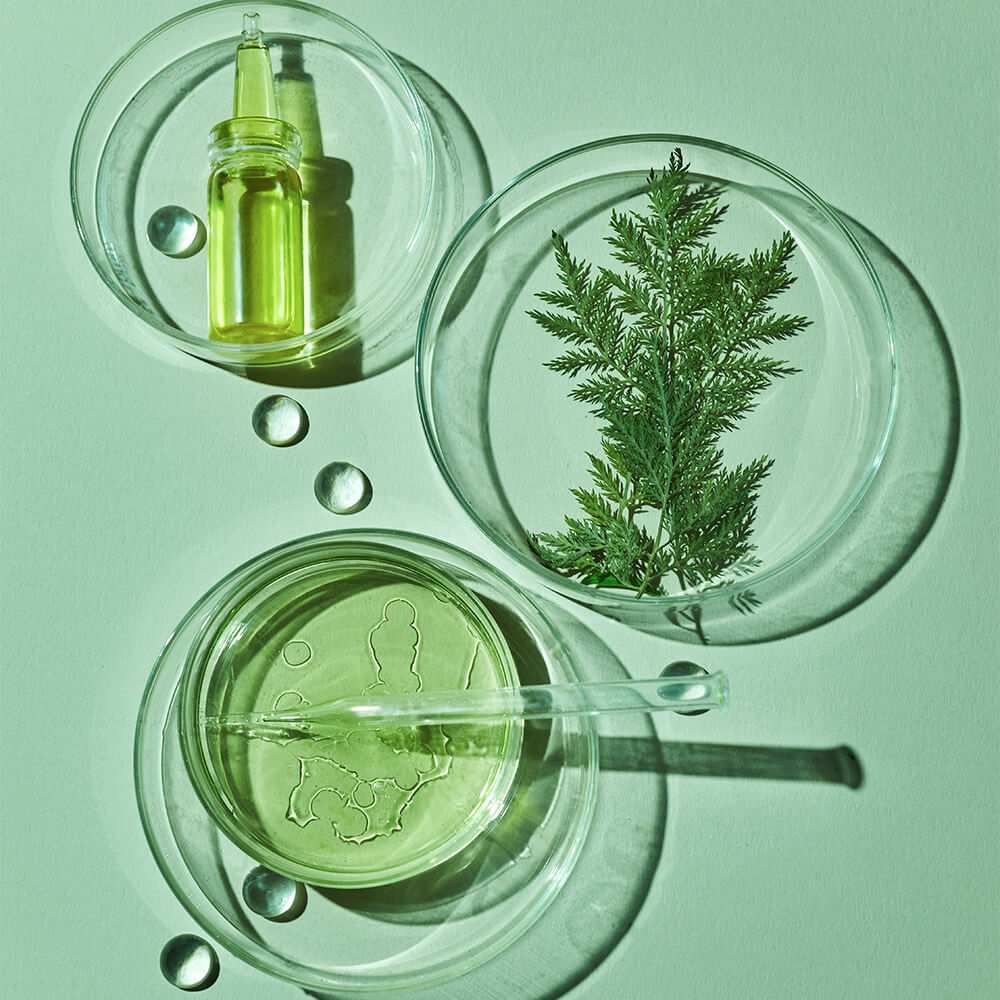
Synthetic colourants
When you apply an eye shadow or a blush, you probably wonder where that particular pigmentation comes from.
Many of the products on the market use synthetic colourants, which have a purely aesthetic value and in most cases are derived from oil.
More than one study hypothesise that they may be carcinogenic over time, or in any case they may cause allergies or irritations in contact with the skin.
Bio
Here are the terms that you have to look for in a natural product, assessing the quantity and percentage to understand if the wording really says the truth.
An organic product completely avoids the use of pesticides or fertilisers, ensuring that 95% of the ingredients inside are of plant or animal origin.
You will therefore have to look for the EU mark, which indicates how a product is truly organic, after having subjected it to rather stringent controls to give the customer a certification that is valid and realistic.
Vegan
If an organic product can contain substances of animal origin, provided that it has not been subjected to treatments that could harm their health, a vegan cosmetic does not contain any.
Therefore, elements such as beeswax, honey or dairy products are banned, drawing exclusively on the properties of plants.
Contact us for more information
What functions do ingredients perform in natural cosmetics?
After finding out how to read the label of a cosmetic that is defined as natural, let us see how we can use it to our advantage according to its specific qualities.
Antioxidants: combating skin ageing
Antioxidants are natural substances that help limit the action of free radicals, responsible for skin ageing.
There are numerous variants that can be contained in an organic or vegan product, such as coenzyme Q10, lipoic acid or even some specific types of vitamins, such as C and E.
These are substances that should not be lacking in a cosmetic, especially if aimed at a more mature age group.
Emulsifiers
Emulsifying substances have the task of balancing and causing the correct reaction between water and natural oils, providing the product with the desired consistency, which is usually soft and foamy.
In this way, it is possible to envelop the skin with the cosmetic and allow a more effective action than a solution that is only liquid or oily.
Instead of using chemicals to stimulate this reaction, natural products use elements such as Glyceryl Stearate Citrate or beeswax, as long as theterm vegan is not stated; the latter, in fact, does not allow the presence of any component of animal origin, regardless of whether it was obtained by cruel and intensive methods or not.
Humectants: skin moisturisers
The skin is in constant need of water and hydration and cosmetics provide this service by using humectant substances.
These are elements that bind with the epidermis and allow water to remain between the tissues, with the aim of hydrating deeply and not only superficially.
Only in this way does the skin appear smooth; otherwise, you would notice signs of dryness.
Natural products do not use chemicals and, to perform this important function, they use more or less known elements, such as hyaluronic acid, aloe vera, honey or glycerols, which bring benefits without usually generating any side effect.

Exfoliators: removal of dead skin cells
Before moisturising the skin, this must be ready and receptive to absorb the natural substances that are added.
This is only possible if you proceed with proper exfoliation, eliminating all dead cells that accumulate on the surface and need a replacement to keep the epidermis healthy, radiant and bright.
Also in this case, there are chemical elements that perform this function but there are also completely natural and plant-based ingredients, which oxygenate the skin without irritating it.
Natural exfoliants can act either mechanically, therefore through rubbing, as happens for some types of salt or seeds within organic oils and humectants, or chemically, by exploiting the properties of different enzymes.
This is the case, for example, of some milk or fruit derivatives, which emit citric acid or substances that can perform a sort of scrub and properly renew the skin.
Plant extracts
Plant extracts are a large quantity of substances, whose beneficial properties depend essentially on the type of plant to which they are addressed.
They can have different tasks, such as wetting, hydrating, smoothing, purifying and eliminating discolouration; therefore, it is advisable to read the label carefully to choose exactly the product that meets our specific needs.
Therefore, vegetable oils and ethanol are important, which cannot be absent in natural cosmetics in order to bring benefits to the skin.
Surfactants as detergents
Surfactant products, as the name suggests, smooth the skin but above all have the task of acting against all kinds of impurities that clog pores.
During the day, due to smog, sweat, excessive sebum production and the type of diet, the skin tends to become impure and this translates into the classic greasy effect or, on the contrary, into a grey complexion and a dry and tight skin sensation.
Natural products use elements such as coconut oil, which moisturises but at the same time rebalances the skin’s natural pH, removing dirt and allowing the body’s external coating to breathe.
Another substance that you will probably find on the label is cocamidopropyl betaine, capable of making foam and eliminating most of the bacteria that we unknowingly have on our face and that cause inflammation and sometimes infections that affect health and beauty.
The Cosmos Ecocert line by Albogroup
Albogroup, attentive to the environment, sustainability and safety of the cosmetic products it produces, offers its customers, also for production on behalf of third parties, lines of cosmetics for Natural and Organic hotels certified Cosmos Ecocert, which respect all guarantees of naturalness according to the Cosmos specification.
Albogroup Cosmos Natural certified hotel amenities lines are cosmetics with important guarantees for the customer:
- Implement production and transformation processes that respect the environment and human health
- They are developed within a production philosophy that enhances the concept of green chemistry
- They use natural resources responsibly, avoiding waste and minimising consumption
- They are formulated without petroleum ingredients such as parabens, phenoxyethanol, without colourants, with certified perfumes.
- Absence of GMOs
- They have recyclable packaging
All products marketed with the Cosmos Ecocert logo have been scrupulously checked by the certifying body: from the composition and processing to the validation of the packaging. Therefore, consumers have access to transparent information on the composition indicated in the products of the percentages of natural and organic ingredients.
If you want to produce a certified organic or natural line of hotel cosmetics on behalf of third parties, Albogroup is the ideal partner. Contact us to develop your project.
